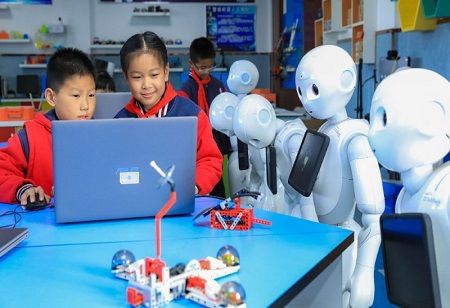- Beijing will introduce mandatory AI courses in all primary and secondary schools starting fall 2025, with at least eight hours of instruction per academic year.
- The curriculum promotes progressive learning, blending technical skills, ethics, and interdisciplinary thinking to prepare students for a digital future.
- AI performance will impact holistic student evaluations, aligning with China’s broader push to cultivate global leadership in AI from a young age.
Beijing is making a big move toward the future of its young generation by including artificial intelligence courses in every primary and secondary school from the fall term of 2025. According to the recently published 'Local Curriculum Guidelines for AI Education in Primary and Secondary Schools in Beijing (Trial Version) (2025 Edition)', students will have to study at least eight hours of AI courses per academic year. This step is a sign of China's greater learning and technology goals, seeking to prepare future generations for a fast-developing digital world.
The guidelines have been carefully crafted to provide a sequential learning process that starts with basic ideas at the primary school level and matures with increasingly sophisticated applications and theoretical foundations in secondary school. The model is not just aimed at developing technical skills but also at equipping students with an appreciation of the wider social and economic and future-industry impacts of AI, its ethics, and so forth.
Notably, AI performance will contribute to each student's overall quality measurement, a holistic assessment model that exceeds conventional academic grading. It evaluates individual progress, critical thinking, creativity, and social responsibility, thus bolstering the importance of interdisciplinary learning and practical applicability. By integrating AI into this model, Beijing indicates its intent to approach technological literacy as a foundational capability for its future citizens.
The policy also conforms to China's national strategy to be a global leader in AI innovation and development. By nurturing talent since childhood, the government wants to have a stable supply of AI-literate talent who can help bolster national competitiveness and global leadership in the discipline.
But the success of this program will be contingent upon a number of key factors, such as the design of high-quality teaching materials, integration of AI content within current subjects, and above all, educators' training. Teachers need to be properly equipped not just to teach AI content but to instill curiosity and ethical contemplation in students. Through vigorous implementation and continued support, this program can become a model for technology-innovated education in the world, making Beijing's youth leaders of the AI era.

